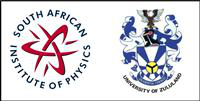Speaker
Abstract content <br> (Max 300 words)
The electrical transport properties of Nitrogen doped Carbon microspheres are experimentally investigated using a number of well-established techniques. Four samples of bulk nitrogen doped carbon microspheres were synthesised using a horizontal chemical vapour deposition reaction. The samples, with varying levels of Nitrogen dopant, are then characterised using EPR (electron paramagnetic resonance) and Raman spectroscopy to confirm the amorphous carbon structure and dopant level so that accurate comparisons between the properties of samples can be made. Raman data gives characteristic spectra of disordered carbon and the Ratios of the ID and IG peaks are calculated. EPR measurements allowed for comparisons between the number of paramagnetic centres in each sample to be compared. This offers a non-destructive technique to determine relative dopant levels and, if a standard is known, absolute dopant levels. Results of temperature dependent four probe resistance measurements on the four samples are presented. Attempts to explain these results using a fluctuation assisted tunnelling model and variable range hopping are explored. The apparent occurrence of a metal insulator transition in some samples is shown and attempts to explain this effect by dopant desorption is presented. The results of a series of variable temperature, high and low bias regime IV Characteristics experiments are presented. Attempts to explain the results of these experiments using a fluctuation assisted tunnelling and thermal activation model explored. The initial results of a series of field dependent and angle dependent magneto resistance experiments are presented and ideas for further experiments to shed light on the transport properties of the samples are given.
Apply to be<br> considered for a student <br> award (Yes / No)?
Yes
Level for award<br> (Hons, MSc, <br> PhD)?
MSc
Main supervisor (name and email)<br>and his / her institution
Dr J. M. Keartland, keartland@psi.phys.wits.ac.za, University of the Witwatersrand
Would you like to <br> submit a short paper <br> for the Conference <br> Proceedings (Yes / No)?
Yes

